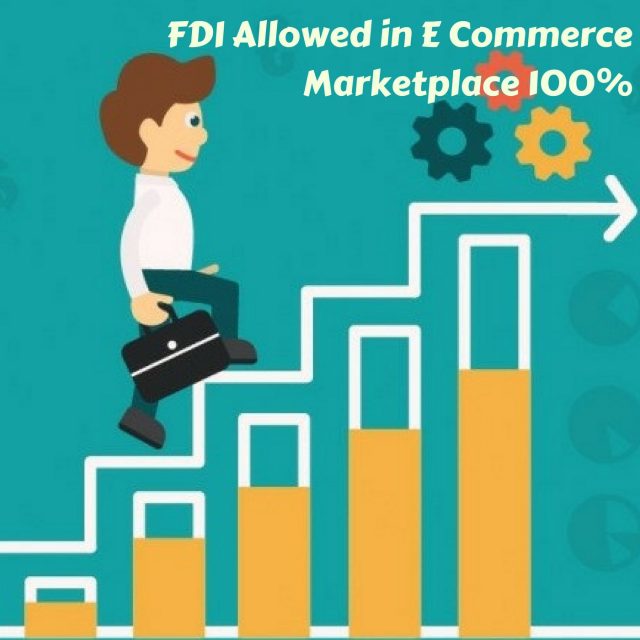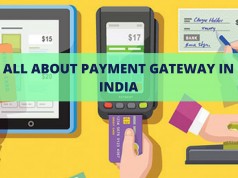What does FDI means? FDI or Foreign Direct Investment means investment in the business of a country by a company in another country. Mostly the investment is to expand operations of an existing business in that country. These investments take place for reasons like
- Take advantage of cheaper wages,
- Special investment privileges (e.g. tax exemptions) etc.
In India in March 2016 FDI was allowed 100% in e-commerce, as per DIPP (Department of Industrial Policy and Promotion) guidelines- FDI in e-commerce has not been allowed in inventory-based model of e-commerce but is only permitted in B2B which means business to business transaction under automatic route i.e. marketplace model of e-commerce. It is said that e-commerce marketplace may provide support service to seller in warehousing and logistics. Marketplace model is an IT platform where digital and electronic network to act as a facilitator between buyer and seller.
It was also notified that the new rules would end the discount wars, much to the disappointment of consumers. The reason being rules now prohibit marketplaces from offering discounts and capping total sales originating from a group company or one vendor at 25%. Also the seller shall be responsible for post sales, warranty and guarantee of goods sold by it and the e-commerce entity will not directly or indirectly affect the sale price of goods or services while maintaining a level playing field.
Impact of this notification:-
- DISCOUNT– since the government is swearing that e-commerce companies only act as a platform to facilitate vendors who are listed to sell, instead of underwriting minimum sales prices and offering discounts, and absorbing the resulting loss themselves. there are two sides positive and negative:-
- This could be a boon in disguise as these e-commerce players would now be forced to push only such discounts that are absorbed by their vendor partners, which in turn may bring in profitability and investor confidence in these players.
- Considering the negative side, there is a strong likelihood that online prices will now go back to the level which is comparable with offline prices; this could make online marketplaces less attractive to shoppers and investors.
- E-commerce valuation might shrink in short term– That is due to the fact that these companies will no longer be able to show large growth in revenues. Already, last month Morgan Stanley marked down the value of its investment in Flipkart by 27%. In the long term, the profitability will recover as heavy discounts end, and that should improve investor perception about these companies, and subsequently valuations.
- Level playing field for offline and also for not-so-heavily-funded e-commerce companies– E-commerce companies have actually become retailers themselves by working around the ambiguities of the policy, offering rebates, which made part of dissimilarity.
It can be considered as a sign towards Goods and Services Tax(GST) that will create a uniform tax structure for goods across the country. It can be a sign towards creation of listing norms which will allow e-commerce to list in India even with mounting losses. The DIPP has allowed some relaxation for these businesses because more foreign money will mean that there will be more jobs and more opportunity in the covered areas. According to Ernst and Young, the retail market is close to $550 billion with only 1% market share taken by e-commerce today and organised retail accounts for only 7%. The increasing monetary size willsurely increase consumer choice and benefit them in the long run in the form of reduced prices. It will become difficult for the online companies to do sales, to give huge discounts to consumers. Online companies give discount to consumers and reimburse the loss to sellers as ‘promotional funding’ but now because of new guidelines such activities got limitations. The new rules say that market place firms cannot offer discounts.
What online buyer think is that they are buying products from Flipkart, Snapdeal or Jabong but actually they are buying is between the product vendor and the buyer. This is how it has been legitimized by the government. Also, there will be increase in the number of fake online sellers. Reason being the new guidelines consumers will get cheated and online e-commerce company will say that they cannot help, as law forbids them.
E-commerce companies will now be compelled to restructure their model of operation in order to raise funds at their current estimates. Also, since FDI is not permitted in inventory-based model, crunching up higher rounds of funding would be a difficult task.
The intention behind it seems to ensure that the online vendors’ owners eventually do not turn into sellers. This could majorly affect home-developed players working as a commercial center while adjusting the end clients basically through their gathering organizations or under a plan with predominant dealers who list their items on the gateway.
Author: This blog is written by Ms. Ayushi Dubey, a passionate blogger & intern at Aapka Consultant.
OUR SERVICES
Company Registration I Trademark I Copyright I Patent I GST I MSME
ISO Certification I Website/App Policy I Legal Documentation
Annual Compliance I Connect Consultant
Visit: Aapka Consultant to get Online Services of CA CS & Lawyers.











